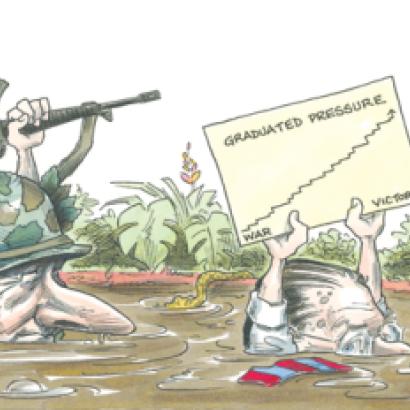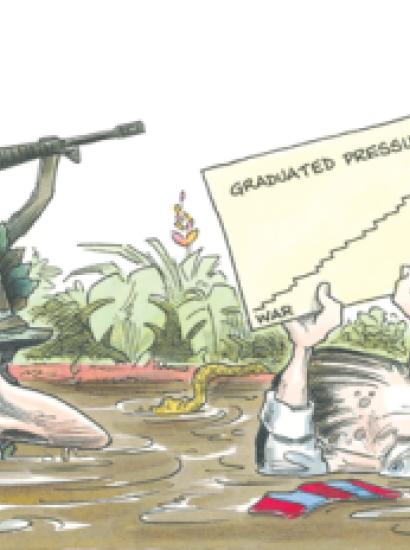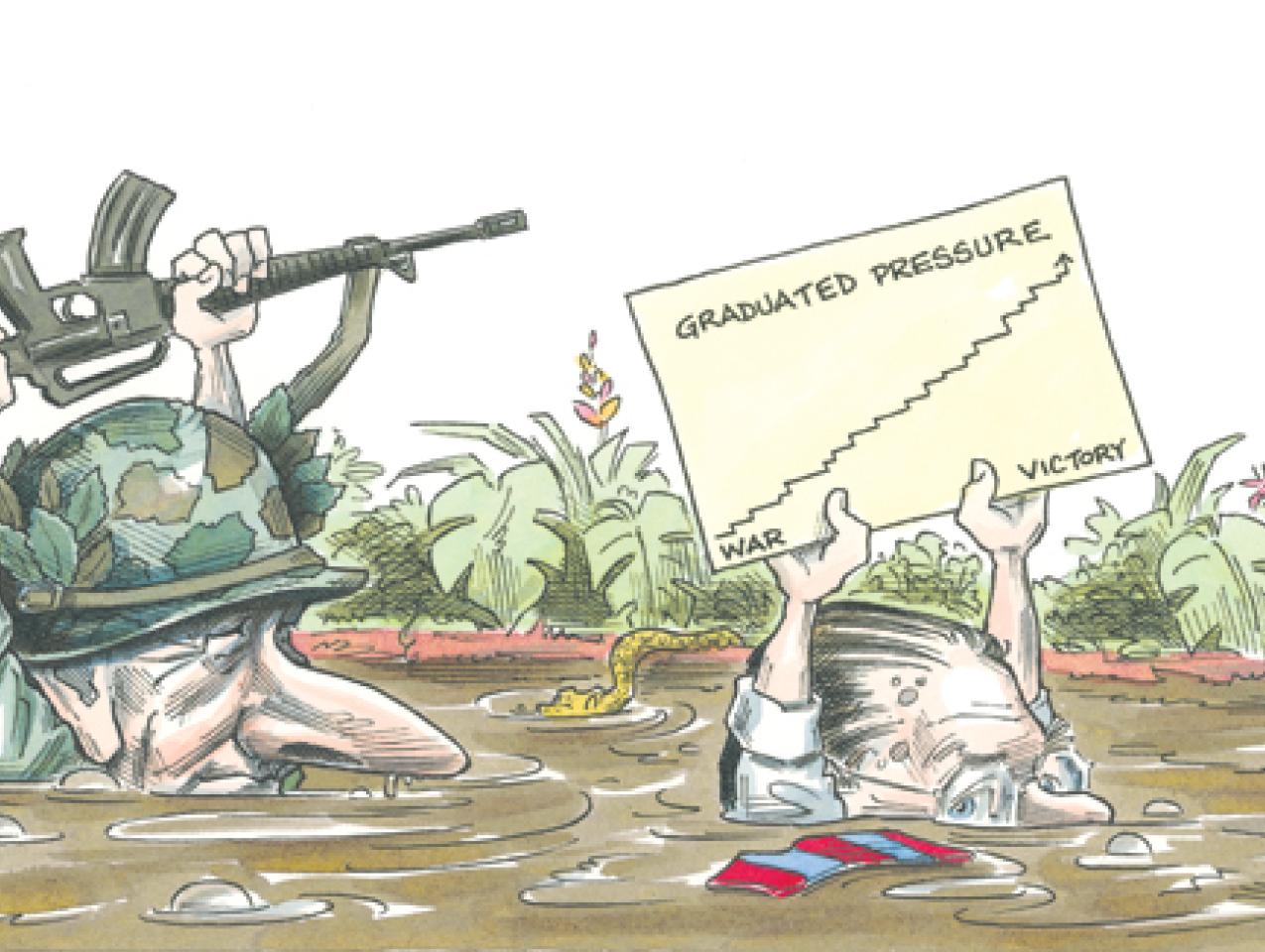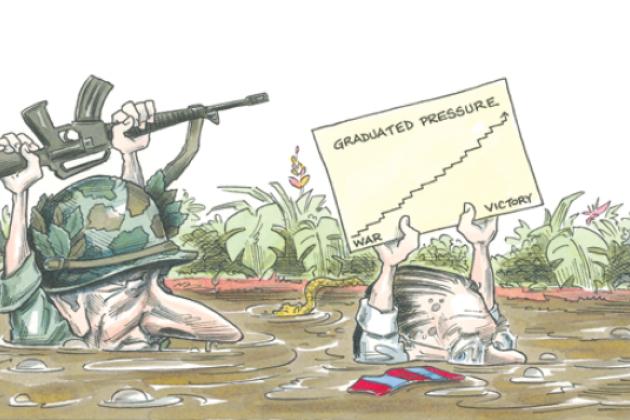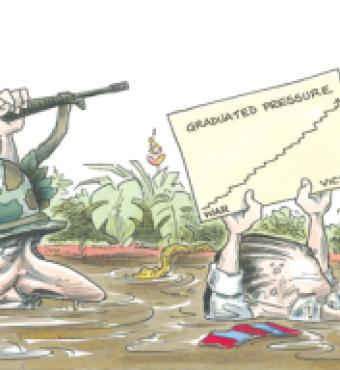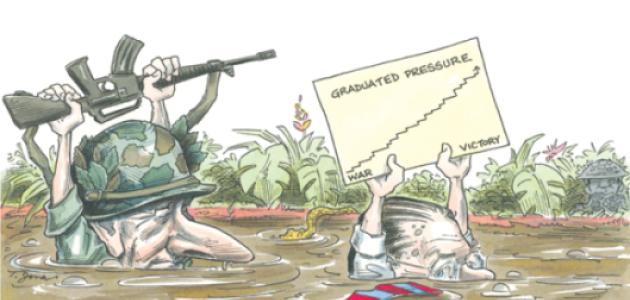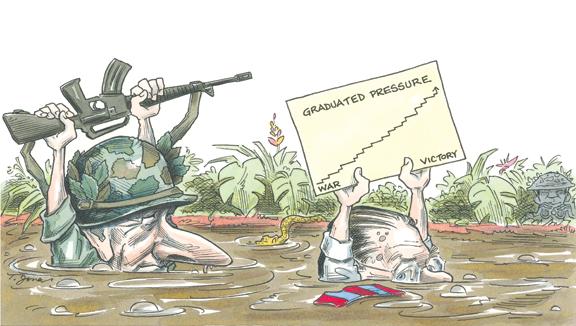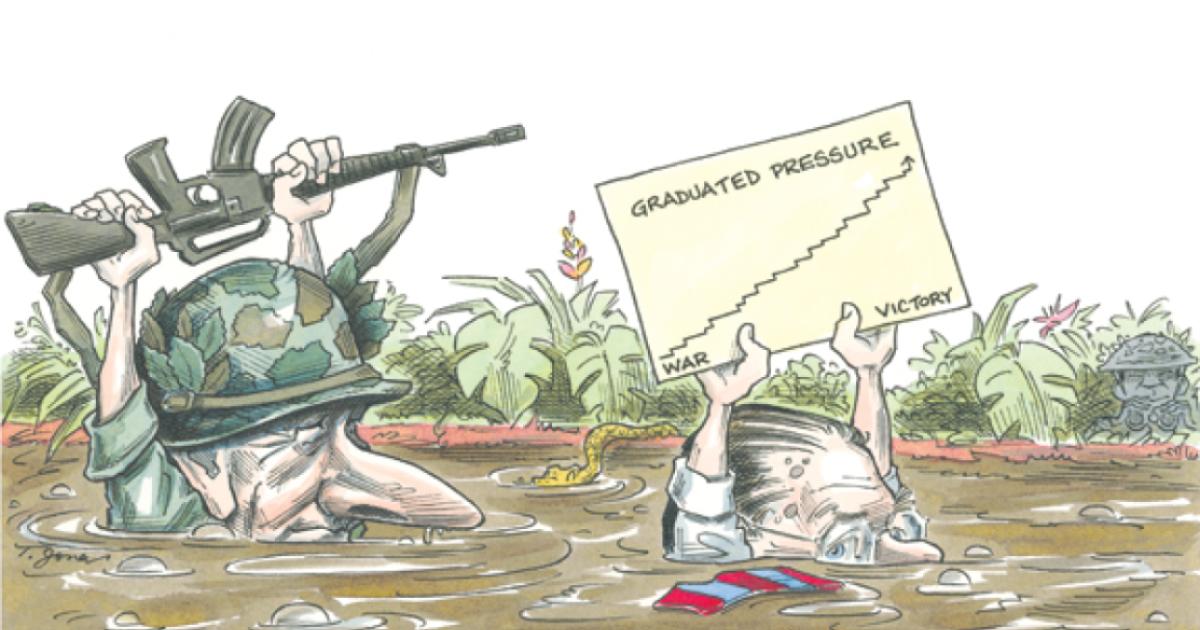In 1963 we gathered for Christmas at my great-grandfather’s ranch, a few miles outside Johnson City—named for our family.
Lyndon Johnson, my uncle, presided over the noisy feast, and the unwrapping and the prayers. By the fire that afternoon, he quizzed me on the Cabinet he had just inherited. I was fifteen, a high school senior. Could I name all the Cabinet members? I could. Did I know which ones were from Wall Street, which ones had served in Congress, which ones had been governors? I did. It went on and on—not unlike the quizzes he must have given his students thirty years earlier when he coached a high school debate team as a young teacher in Houston.
But now, he said, he had a question that was sure to stump me. Who was the most compassionate member of the Cabinet? I guessed, rather unconfidently. Wrong. I guessed again, wrongly. He laughed and said: “You’ll never get it. It’s Bob McNamara. By far.” It was a surprise because we all thought of Bob McNamara as the no-nonsense numbers man from corporate America. The steel-rimmed glasses and the steel-trap mind were perfectly suited to an industrial mentality.
Lyndon Johnson, a good reader of men, was right about Robert McNamara, who died in July at the age of ninety-three, having served seven years as secretary of the Defense Department and then thirteen as president of the World Bank.
LENDING TO THE WORLD’S POOR
Just a glance at McNamara’s tenure at the World Bank shows a man driven by a desire to help the poor. During his presidency, lending to the developing world grew from 60 loans totaling under $1 billion to 250 loans totaling almost $12 billion. His efforts to move governments to increase their contributions to the poorest countries earned him the reputation in the underdeveloped world as “the conscience of the West” (a phrase unlikely to be associated with him at home). At the time of the Cuban missile crisis, his was one of the few voices ardently opposed to invasion.
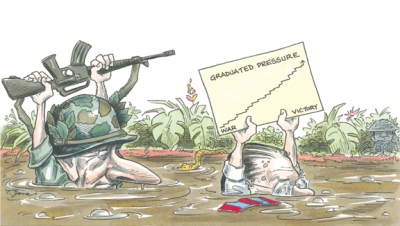
Early in their relationship, Johnson was so taken by McNamara’s commitment to social justice that he mused openly about whether he could make him his vice presidential candidate in 1964. As Clark Clifford observed, “In my years in Washington, only a handful of people below the presidential level have dominated the scene: George Marshall, Dean Acheson, and Henry Kissinger all come to mind. But no one held the capital in sway more powerfully than McNamara, from 1961 until the end of 1967.”
What happened?
Robert McNamara went to the Pentagon to reform it, to rationalize its decision making, and to systematize its analyses. From the outset he was unpopular with many high-ranking officers who were more comfortable with the institutionalized cross-purposes of the defense establishment and the educated intuition of experienced military personnel.
McNamara was right about the need for reform, but it was in part his confidence in those sensible efforts that blinded him to the need for a change in strategy in Southeast Asia. Used to hearing mindless criticism, he became wedded to relying on those analytic methods that were superior to the ones he found at the Pentagon, not entirely appreciating their limited utility in Vietnam.
Unfortunately, just as he was trying to get rid of the bureaucratic practices that had governed the Army during the first half of the twentieth century, he found himself in the midst of a sudden shift away from the strategic context that had structured American warfare since the Civil War. The “total warfare” of the industrial state, at which McNamara excelled, was no longer either acceptable or effective.
He was not the only one to miss the need for this kind of change in the war aim, rather than simply its practices. Strategic planning is an extrapolation from the past; in Southeast Asia, the United States confronted warfare for which its past provided no guidance. McNamara’s obsession with quantitative planning tended to make matters worse: though we killed more and more of the enemy, we were never able to protect civilians adequately.
CONFLICTED, HAUNTED
That this failure haunted him is to his credit. Just how much his role troubled him was made clear when both he and McGeorge Bundy, the national security adviser to Kennedy and Johnson, broke their silence about the conduct of the war in the mid-1990s to claim that President Kennedy, had he lived, would not have escalated the conflict in 1965, an implausible assertion that depended on the assumption that the president would have rejected the very advice both brilliant men jointly urged in 1965.
McNamara found it difficult to accept human tragedy. If only we worked harder, thought more clearly, marshaled our resources more prudently, if only . . . And so, late in life, he published an apologia claiming that he had known for some time that the war would fail but had not been willing to undermine American morale to say so, even to the president. He seems to have been unwilling to accept that a stalemate was about as good an outcome as was available, at least until we learned the new tactics and goals that we are only now coming to appreciate.
Although it may be hard for many of us to view the numbers-crunching, data-driven warlord as a person of deep compassion, his naive refusal to accept an agonizing inevitability was related to that compassion. He believed there was a way out of Southeast Asia that would save its people from ruthless dictators without an endless sacrifice of American and Vietnamese life. In the language of the game theorists, he believed there was an equilibrium, a stable option that would maximize freedom and minimize harm. In the end, American frustration achieved just the opposite.
Some have expressed contempt for Robert McNamara. I’m not surprised. But what’s called for, I think, is something much harder to sustain: compassion.








